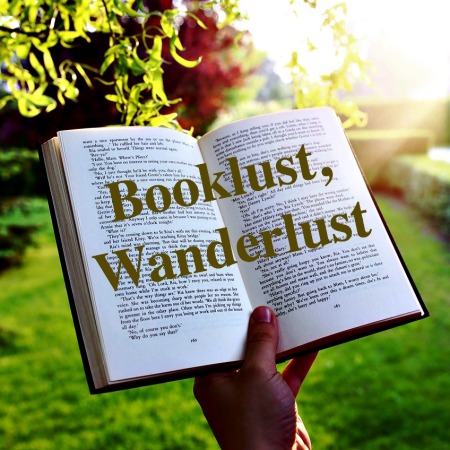
Are bookworms like earth worms: do they come to the surface during the spring rains? In which case, the Displaced Nation’s timing—we publish our yearly roundup of recommended books for, by, and about expats and other global creatives in late February and early March—may not be as eccentric as all that. And at least we’re not competing with lots of other “best of 2016” lists that came out in December!
Without further ado, we’re calling on all of you displaced bookworms to come out and start feasting! This year there are 60 books on our list, a first. Hopefully it means you’ll find a title or two that you missed. Or perhaps you’ll see books whose titles sound familiar—especially if you subscribe to our Displaced Dispatch—but of which you forgot to make a note.
Part One, published today, presents 36 works of fiction, both novels and story collections, indie as well as traditionally published works. Part Two will add 24 works of nonfiction, bringing the total to 60. As in years past, the books appear in reverse chronological order.
* * *
Fall 2016
 The Good Officer: Can they love again? (Newhurst Press, November 18, 2016)
The Good Officer: Can they love again? (Newhurst Press, November 18, 2016)
Author: Helena Halme
Expat credentials: Born in Finland, Halme lived in Sweden as a child and felt displaced when her family moved back to Finland when she was 14. She left Finland to live in England (now London) after meeting and marrying a British man (yes, he was in the military!), but she still celebrates Finnish customs.
Synopsis: Kaisa has betrayed her husband, the handsome English naval officer, Peter. What can she do but move back to her native Finland? But then she takes a job in London and meets Peter again by chance. Can they love each other again? The third novel in The Englishman series following the tumultuous 1980s love affair between a Finnish student and a British naval officer, based loosely on Halme’s own life story.
How we heard about: Halme has been featured several times on the Displaced Nation: see, for instance, her Random Nomad interview, still one of our best!
Why we recommend: How often do you get to read a Nordic military romance?
 A Year and a Day (Penguin Books, Nov 17 2016)
A Year and a Day (Penguin Books, Nov 17 2016)
Author: Isabelle Broom
Expat credentials: Broom travelled through Europe during her gap year and went to live on the Greek island of Zakynthos for an unforgettable and life-shaping six months after completing her degree in media arts in London (her first novel, My Map of You, is set on that island). Since then, she has travelled to Canada, Sri Lanka, Sicily, New York, LA, the Canary Islands, Spain and lots more of Greece. She loves to write books set in far-flung locations.
Synopsis: Three different couples find themselves staying in the same hotel in Prague, and we follow them as they mingle and get to know each other and form a bond.
How we heard about: Trip Fiction review,with Prague promo.
Why we recommend: According to several of Broom’s Amazon reviewers, the Prague of this book is “magical” and becomes an “additional character.”
 Swing Time (Penguin, November 15, 2016)
Swing Time (Penguin, November 15, 2016)
Author: Zadie Smith
Expat credentials: Smith is the product of a black mother and a white father, whom her mother married after migrating to England from her native Jamaica. Now a professor of fiction at New York University, Smith has traded London for New York City for at least part of the year.
Synopsis: Set in England and West Africa, the story concerns the friendship of two mixed-race girls who meet in a tap dance class in London in 1982. One has talent; the other has ideas.
How we heard about: New York Times Sunday Book Review
Why we recommend: Particularly when the action moves to West Africa, the novel parses race and global politics in a way only a writer of Smith’s caliber can.
 Postcards from Tokyo, Book 1 (November 3, 2016)
Postcards from Tokyo, Book 1 (November 3, 2016)
Author: Wendy Nelson Tokunaga
Expat credentials: Born in San Francisco, Tokunaga has lived in the Bay area all her life except for when she lived in Tokyo during the early 1980s. Her husband is Japanese.
Synopsis: Six stories that are all inspired by Tokyo, a place that writer Tokunaga has observed both first-hand and from afar. Highlights include a story about a young American who leaves her hostess job to become a kept woman but instead of finding solace is unable to escape her own demons, and a story about an American cat that becomes a stowaway with the intention of becoming a social media sensation in Japan.
How we heard about: We have featured Tokunaga a couple of times on the Displaced Nation (see, for instance, this interview) and follow her on social media.
Why we recommend: Tokunaga has a knack for telling stories about Japan that are culturally insightful while also being highly entertaining.
 Je T’Aime…Maybe? (TGRS Communications, November 3, 2016)
Je T’Aime…Maybe? (TGRS Communications, November 3, 2016)
Author: April Lily Heise
Expat credentials: April Lily Heise is a Canadian writer and romance expert who has been living in Paris for over a decade. This is her second novelized memoir on her romantic misadventures.
Synopsis: After barely surviving a turbulent series of relationships in the City of Love (shared in the first volume of the series, Je T’aime, Me Neither), our heroine Lily is ready to throw in the towel on amour. That is, until she receives a very unexpected email—one which revives her hope in finding true love…yet at the same time awakens the mischievous, passionate energy of Paris. Will she manage to connect with her potential soul mate, located on the other side of the globe?
How we heard about: We follow the HIP Paris Blog.
Why we recommend: Readers of Heise’s blog and book appreciate her for being “hilarious,” “brutally honest” and “badass” about love in the city that celebrates that emotion. As one of them puts it, this book is a “sort of Parisian-style Bridget Jones’s Diary.”
 A Portrait of Emily Price (HarperCollins, November 1, 2016)
A Portrait of Emily Price (HarperCollins, November 1, 2016)
Author: Katherine Reay
Expat credentials: After living all across the United States and a few stops in Europe, Katherine and her family recently moved back to Chicago. It’s also the first book Reay has written that’s based in a place where she hasn’t lived, though she did visit Italy multiple items when living in Europe.
Synopsis: Art restorer Emily Price has never encountered anything she can’t fix—until she meets Ben, an Italian chef, who seems just right. They marry and Emily follows Ben home to Italy, where she finds she can’t quite adjust to his family and culture.
How we heard about: From Publishers Weekly listing
Why we recommend: It’s interesting that an author who usually takes her inspiration from Jane Austen has entered Henry James territory, portraying clashing worldviews and other cross-cultural miscommunications. What’s more, the book includes sensually evocative descriptions of Italian food and scenery, for which it has earned comparisons with Frances Mayes’s Under the Tuscan Sun.
 The Boat Rocker (Pantheon, October 26 2016)
The Boat Rocker (Pantheon, October 26 2016)
Author: Ha Jin
Expat credentials: Xuefei Jin, who publishes under the nom de plume Ha Jin, is a China-born but United States-based author. A former Chinese army soldier, he chose to stay in the United States after the Tiananmen Square massacre.
Synopsis: Chinese expatriate Feng Danlin is a fiercely principled reporter at a small news agency that produces a website read by the Chinese diaspora around the world. Danlin’s explosive exposés have made him legendary among readers—and feared by Communist officials. But his newest assignment may be his undoing: investigating his ex-wife, Yan Haili, an unscrupulous novelist who has willingly become a pawn of the Chinese government.
How we heard about: New York Times Sunday Book Review
Why we recommend: At a time when the press is under attack, it is interesting to read a novel by a writer who has lived under two very different sets of rules: the Communist Party’s elaborate control of mass media and the free market’s complicated influence on what we read and watch.
 How to Pick Up a Maid in Statue Square: Stories (Thistledown Press, Oct 16, 2016)
How to Pick Up a Maid in Statue Square: Stories (Thistledown Press, Oct 16, 2016)
Author: Rea Tarvdas
Expat credentials: When her husband, a management consultant, was transferred to Hong Kong in 2000, Tarvdas placed her job as a psychiatric emergency-room nurse on hold and packed up the house and moved for two years to Hong Kong. She has since repatriated to Calgary, Canada.
Synopsis: A collection of stories that creates a fictional community of hardworking men and women, bankers and brokers, maids and househusbands, who are, in the author’s words, “all trying to find their way through the space in which loneliness and alienation intersect.”
How we heard about: From Tarvdas’s personal essay in Quill & Quire.
Why we recommend: Tarvdas has used fiction to channel the intense feelings that come up when you’re an expat, particularly a trailing spouse, in Southeast Asia, including dislocation, loneliness, alienation, and even sexual redundancy.
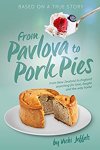 From Pavlova to Pork Pies: From New Zealand to England searching for love, laughs, and the way home (Writer’s Cat, October 2, 2016)
From Pavlova to Pork Pies: From New Zealand to England searching for love, laughs, and the way home (Writer’s Cat, October 2, 2016)
Author: Vicki Jeffels
Expat credentials: Jeffels has lived in four countries, both hemispheres and has travelled around the world only to end up back where she started, in Auckland, New Zealand.
Synopsis: Based on a true story and an award-winning blog, the plot concerns a divorced mother-of-three from New Zealand who goes on a European tour and meets the man of her dreams, an Englishman, in the City of Light; starts a long-distance relationship with him; and then moves with her family to live with him in the UK, only to have disaster strike when she and her kids are threatened with deportation.
How we heard about: We have known Jeffels back in the day when she was blogging about being an expat in Britain, married to a Brit she met in Paris—she was one of our early Random Nomad interviewees.
Why we recommend: Jeffels has a droll sense of humour and loves travel, chocolate, food, and wine. You can’t go wrong with an author like that.
 Conquest: Daughter of the Last King (Impress Books, October 1, 2016)
Conquest: Daughter of the Last King (Impress Books, October 1, 2016)
Author: Tracey Warr
Expat credentials: Warr was born in London and lives in the UK and France.
Synopsis: The first in Warr’s new Conquest trilogy, the book is set in the early middle ages when Britain was invaded by William the Conqueror. It concerns the fate of Nest ferch Rhys, the daughter of the last independent Welsh king, after she is captured by the Normans following their assault on her lands, taken to their lair in Cardiff, imprisoned in the motte, and forced to learn Norman.
How we heard about: Warr is our Location, Locution columnist.
Why we recommend: With so many people being displaced by war in the present era, it seems strange to think that this kind of thing was going in the 12th century as well. Is forced displacement an inevitable part of the human condition?
 Carte Postales from Greece (Hodder, September 22, 2016)
Carte Postales from Greece (Hodder, September 22, 2016)
Author: Victoria Hislop
Expat credentials: Hislop has nurtured a passion for Greece for more than three decades. She speaks Greek and keeps a second home in Crete, where she spends several months of every year.
Synopsis: Englishwoman Ellie mistakenly receives a series of tantalizing postcards from Greece. Once the cards stop coming, she spontaneously organizes her own trip to Greece and, with the help of a mysterious notebook she receives just before her departure, discovers a wonderful world of tradition, folklore, love and betrayal—a world not usually accessible to first-time visitors.
How we heard about: TripFiction’s interview with the author
Why we recommend: Hislop traveled in Greece with a Greek photographer and has used his photos to illustrate the book. In some cases, the stories developed because of the photos; in other cases, it was the other way around. The idea was to have the words and pictures work very closely together. The idea sounds super creative, and we’re curious how it turned out.
Summer 2016
 The Pull of It (Underground Voices, September 21, 2016)
The Pull of It (Underground Voices, September 21, 2016)
Author: Wendy J. Fox
Expat credentials: Fox was raised in rural Washington state, and lived in Turkey in the early 2000s. She was still living in Turkey when she started the manuscript. She now lives in Seattle.
Synopsis: The story of a young wife and mother who takes a solo vacation in Turkey to recharge, and ends up diving into a new culture. She skips her flight home and boards a bus to the interior of the country, where she will stay for another six months, until her previous life pulls her home and she must confront her demons.
How we heard about: Writer Lisa Morrow quotes from Fox’s novel in Part One of her interview with us, published in November of last year.
Why we recommend: The premise of the story sounds interesting. As Fox told reviewer Mark Stevens, she thought her protagonist would need to be immersed in a “realm that was totally foreign” as only then could she “get down to the core of herself and understand what she wants.”
 The Other Side of the World (Atria Books, September 20, 2016)
The Other Side of the World (Atria Books, September 20, 2016)
Author: Stephanie Bishop
Expat credentials: Her grandparents migrated from England to Australia in the 1960s. Although her grandmother lived more than half her life in Australia she still thought of England as home and Bishop grew up listening to her complain about how much she missed Britain. As a young adult, Bishop herself experienced “dual homesickness” as she moved back and forth between England and Australia for her education (she got her Ph.D. from Cambridge and will soon have a visiting fellowship at Oxford).
Synopsis: A novel set in England, Australia, and India in the early 1960s. Charlotte is struggling with motherhood, with the changes brought on by marriage and parenthood, and with never having the time or energy to paint. Her husband, Henry, an Anglo-Indian, cannot face the thought of another English winter. A brochure slipped through the mailbox—Australia brings out the best in you—gives him an idea. Charlotte is too worn out to resist, and before she knows it they are traveling to the other side of the world. But upon their arrival in Perth, the southern sun shines a harsh light on the couple and gradually reveals that their new life is not the answer either was hoping for.
How we heard about: Nina Sichel promoted it on the Writing Out of Limbo Facebook page.
Why we recommend: The novel explores Bishop’s fascination with a dual sense of longing and nostalgia about two places one considers to be “home.”
 Him, Me, Muhammad Ali (Sarabande Books, September 19, 2016)
Him, Me, Muhammad Ali (Sarabande Books, September 19, 2016)
Author: Randa Jarrar
Expat credentials: Jarrar grew up in Kuwait and Egypt. She moved to the United States after the first Gulf War, at the age of 13.
Synopsis: Stories about Middle Eastern women much like Jarrar herself, strong girls and women who’ve somehow landed in the United States, interlaced at times with magic. We travel from Cairo to Yonkers, from the West Bank to Wyoming.
How we heard about: From a tweet by M. Lynx Qualey (@arablit).
Why we recommend: This is Jarrar’s first story collection, following the debut of her first novel, A Map of Home, which won an Arab-American Book Award. As one critic writes, the anthology reflects Jarrar’s own experience of moving between continents and cultures through characters that always seem to be searching for that one place where they fit in: “Often, they don’t, so it’s the nebulous in-between space where their lives unravel.”
 The Tea Planter’s Wife (Random House Broadway Books, September 13, 2016)
The Tea Planter’s Wife (Random House Broadway Books, September 13, 2016)
Author: Dinah Jefferies
Expat credentials: Jefferies was born in Malaysia and moved to England at the age of nine. Her idyllic childhood always held a special place in her imagination, and when she began writing novels in her 60s, she was able to return there—first in her fiction and then on annual research trips for each new novel.
Synopsis: An historical family drama set in Ceylon in the 1920s. Gwendoline, a young Engliah woman, fresh off the boat who has come to join her new husband at his tea plantation. She faces a big culture shock and then a mystery surrounding this man.
How we heard about: Tracey Warr’s interview with Jefferies in her Location, Locution column (published 3 December 2016).
Why we recommend: One of Warr’s other interviewees, Hazel Gaynor, chose this book by Jefferies for its “wonderful sense of location.”
 Singapore Love Stories (Monsoon Books, September 2016)
Singapore Love Stories (Monsoon Books, September 2016)
Author/Editor: Verena Tay (she contributed “Ex” )
Coordinator/Compiler: Raelee Chapman (she contributed “The Gardener”)
Expat credentials: Tay is based in Singapore but was educated internationally. Chapman is an Australian writer living in Singapore.
Synopsis: Leading Singaporean and Singapore-based writers explore the best and worst of the human condition called love, including grief, duplicity and revenge, self-love, filial love, homesickness and tragic past relationships.
How we heard about: Valentine’s Day post by Trip Fiction, replete with travel tips and giveaway
Why we recommend: The writers are a diverse group, including Singaporeans and expats, both Western expats and expats from within Asia, and also established writers and those published for the first time.
 Behold the Dreamers (Penguin/Random House, August 23, 2016)
Behold the Dreamers (Penguin/Random House, August 23, 2016)
Author: Imbolo Mbue
Expat credentials: Mbue moved from Cameroon to New York City ten years ago.
Synopsis: The story of a Cameroonian couple and their son who settle in Harlem hoping to capture their piece of the American dream amidst the 2008 financial and housing market crisis.
How we heard about: New York Times Sunday Book Review
Why we recommend: Inspired by Toni Morrison’s novel Song of Solomon, Heinemann’s African Writers Series and British classics she read growing up, Mbue told one interviewer that she decided to write about what she knows best: the Cameroonian immigrant experience.
 Monsoon Summer (Simon and Schuster, August 9, 2016)
Monsoon Summer (Simon and Schuster, August 9, 2016)
Author: Julia Gregson
Expat credentials: Gregson has worked as a journalist and foreign correspondent in the UK, Australia, and the US. She grew up a military brat as her father was in the Royal Air Force. She has worked as a jillaroo in the Australian outback as well as a model for Hardy Amies in London.
Synopsis: An epic postwar love story moving from England to India. English nurse Kit meets Anto, a young Indian doctor finishing up his training at Oxford. They secretly marry and set off for South India—where Kit plans to run the maternity hospital she has already been helping from afar. But life in India does not turn out as she imagined.
How we heard about: From Tracey Warr’s Location Locution interview with Dinah Jefferies, who said she loved Gregson’s East of the Sun for the way it evokes a particular time in India,
Why we recommend: Critics praise Gregson for understanding both the harshness and beauty of India, its land, culture, and history. When researching this novel, Gregson went to Kerala and lived with an Indian family. She traveled in a rice boat up many of the back waters she describes in the book.
 Still Here (Hogarth Random House, Aug 2, 2016)
Still Here (Hogarth Random House, Aug 2, 2016)
Author: Lara Vapnyar
Expat credentials: Russian-born author Lara Vapnyar moved from Moscow to Brooklyn in 1994 as an adult, picked up English quickly, and started publishing short stories about the daily-life concerns of Russian émigrés like herself.
Synopsis: Vica, Vadik, Sergey and Regina met in Russia in their college days but remained in touch. They now have very different, yet intertwined, lives as immigrants in New York City. The story follows them as they grapple with love and tumult, the challenges of a new home, and the absurdities of the digital age.
How we heard about: New York Times Sunday Book Review
Why we recommend: One reviewer has praised it as “minutely observed, razor funny and wholly wonderful.” That’s a spectacularly high endorsement!
 This Must Be the Place (Knopf, July 19, 2016)
This Must Be the Place (Knopf, July 19, 2016)
Author: Maggie O’Farrell
Expat credentials: O’Farrell is a domestic expat of sorts. Born in Northern Ireland, she was brought up in Wales and Scotland, and now lives in Edinburgh.
Synopsis: A New Yorker living in the wilds of Ireland, Daniel Sullivan has children he never sees in California, a father he loathes in Brooklyn, and a wife, Claudette, who is a reclusive French-English ex–film star given to pulling a gun on anyone who ventures up their driveway. Once the most glamorous and infamous woman in cinema, she orchestrated her own disappearance, retreating to the seclusion of an Irish farmhouse. All seems well enough until the couple must struggle to hold things together in the face of a secret from Daniel’s past.
How we heard about: New York Times Book Review
Why we recommend: As one Amazon reviewer says, O’Farrell has created a set of “misplaced and lost characters, searching for an authentic place within themselves.” She notes that their “searching leads to external travels and internal jaunts. They are searching: for love, for connection, for identity, for affirmation, for understanding.”
 Dancing with the Tiger (Putnam, July 12, 2016)
Dancing with the Tiger (Putnam, July 12, 2016)
Author: Lili Wright
Expat credentials: A former journalist who has lived a year in Paris, a year in Italy and two years in Mexico, Wright, who recently earned an MFA, is now a professor at DePaul University in Indiana. During her many trips to Mexico, she has studied Spanish, lived with Mexican families, and had many adventures including watching dancing tigers parade down the streets.
Synopsis: Anna flees her dead-end life in New York City (she has just broken up with her fiancé) to hunt down what her father, a mask collector, believes to be the death mask of Aztec King Montezuma, from an American looter in Mexico.
How we heard about: A press release
Why we recommend: Wright says she tends to mix French, Italian, and Spanish together, but critics say she gets her cultural references just right in her debut novel, set in Mexico.
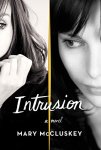 Intrusion (Little A, July 1, 2016)
Intrusion (Little A, July 1, 2016)
Author: Mary McCluskey
Expat credentials: Born in Warwickshire, McCluskey lived and worked in a number of cities in Europe—London, Brighton, Vienna, Munich, Athens—before finding a home in Los Angeles, California, where she married and gave birth to two sons. She now lives in Stratford-upon-Avon, twenty miles from where she was born, though still spends time in LA. She considers both LA and Stratford “home.”
Synopsis: A psychological drama about a couple dealing with the hardest of losses: the death of their only child, set against the backgrounds of Southern California and Sussex, UK. The marriage is thrown into a tailspin when the wife’s old schoolmate from England shows up, ostensibly to help the couple get over their grief.
How we heard about: TripFiction interview with the author
Why we recommend: McCluskey has lost a child (an experience a couple of authors on our site have had) and knows how it feels. She also has a nuanced view of the differences between the UK and the US.
 The Lover’s Portrait: An Art Mystery (Traveling Life Press, June 22, 2016)
The Lover’s Portrait: An Art Mystery (Traveling Life Press, June 22, 2016)
Author: Jennifer S. Alderson
Expat credentials: After traveling extensively around Asia and Central America, Alderson moved to Darwin, Australia, before finally settling in the Netherlands with her Dutch husband and their son.
Synopsis: In the second of a series following the adventures of traveler and culture lover, Zelda Richardson, Zelda scores an internship at the prestigious Amsterdam Museum, where she works on an exhibition of paintings and sculptures once stolen by the Nazis, When two women claim the same portrait of a young girl entitled Irises, Zelda is tasked with investigating the painting’s history.
How we heard about: Alderson’s first Zelda Richardson novel, Down and Out in Kathmandu, was one of Booklust Wanderlust columnist Beth Green’s three book picks in honor of Mother’s Day this past year. (Notably, Alderson also contributed to Green’s column canvassing several writers on their recommended reads for the not-quite end of summer.)
Why we recommend: The novel draws on the author’s experiences gained while studying art history in the Netherlands and working for several Dutch museums.
Spring 2016
 The Girl and the Sunbird: A beautiful, epic story of love, loss and hope (Bookouture, June 17, 2016)
The Girl and the Sunbird: A beautiful, epic story of love, loss and hope (Bookouture, June 17, 2016)
Author: Rebecca Stonehill
Expat credentials: Stonehill is from London but currently lives in Nairobi with her husband and three children where she teaches creative writing to school children. Synopsis: East Africa 1903: When 18-year-old Iris Johnson is forced to choose between marrying the frightful Lord Sidcup or a faceless stranger, Jeremy Lawrence, in a far-off land, she bravely decides on the latter. But when Iris meets Jeremy, she realizes in a heartbeat that they will never be compatible. Determined to make the best of her new life, she begins to adjust to her surroundings; the windswept plains of Nairobi and the delightful sunbirds that visit her window every day. And when she meets Kamau, a school teacher, Iris finds her calling, assisting him to teach the local children English.
How we heard about: TripFiction’s interview with Stonehill about her adopted home city of Nairobi
Why we recommend: Many readers compare Stonehill with Victoria Hislop, who has also made our list. Her first book, The Poet’s Wife—based on the 18 months she spent living in Granada—was a big hit with readers.
 I Promise You This: Book Three in the Love in Provence Series (Lake Union Publishing, May 17, 2016)
I Promise You This: Book Three in the Love in Provence Series (Lake Union Publishing, May 17, 2016)
Author: Patricia Sands
Expat credentials: A Canadian, Patricia Sands lives in Toronto, but her heart’s other home is the South of France. An avid traveler, she spends part of each year on the Côte d’Azur and occasionally leads groups of women on tours of the Riviera and Provence.
Synopsis: The series follows the adventures of Katherine Price, a sensible Canadian woman who is undergoing a midlife crisis, a symptom of which is falling for a Frenchman named Philippe. She follows Philippe to his idyllic home in Provence but worries it’s a fantasy life. So, is Katherine ready to leave everything behind for an unknown life abroad? We find out in the conclusion to this trilogy about second chances.
How we heard about: TripFiction’s giveaway of Sands’s trilogy
Why we recommend: Sands herself is a good example of second chances, having taken up writing in her 60s. She chose a theme close to her heart: France, which she first fell in love with when she backpacked around the country for a year when she was 21, a love affair that has only grown throughout her life. She considers herself to be a “possibilatarian” and encourages the rest of us to do the same.
 The Mirror Thief (Penguin Random House, May 10, 2016)
The Mirror Thief (Penguin Random House, May 10, 2016)
Author: Martin Seay
Expat credentials: As Seay put it in an interview, one of the sparks that led to the book was his memory of “a couple of misty Lenten backpacker days” in Venice: “at the time and still today the strangest place I’ve ever been.” He now lives in Wheeling, Illinois.
Synopsis: The novel consists of a series of nested stories telling of three Venices in three locations and eras: the Venetian casino in Las Vegas in 2003; Venice Beach, CA, in 1958; and the original city-state, in 1592, the time when its mirror-making industry was at its peak. Seay weaves all three stories together in a tour-de-force.
How we heard about: Made the Publishers Weekly list of most anticipated debut novels of Spring 2016
Why we recommend: The book came out to huge critical praise and has been called, among other things, a “masterpiece,” a “startling gem,” a “beautifully plotted potboiler,” and a “true delight.”
 Back to Moscow (Farrar, Straus and Giroux, May 3, 2016)
Back to Moscow (Farrar, Straus and Giroux, May 3, 2016)
Author: Guillermo Erades
Expat credentials: Guillermo Erades was born in Málaga, Spain. As a career diplomat for the European Union, he has held posts in Moscow, Berlin, Baghdad and Brussels, where he is currently based. He has also lived in Leeds, Amsterdam, and Luxembourg. He wrote this book, his first novel, during a two-year posting high-security compound in Baghdad, where there were few distractions.
Synopsis: Martin came to Moscow at the turn of the millennium hoping to discover the country of Dostoyevsky, Tolstoy, and his beloved Chekhov. Instead he found a city turned on its head, where the grimmest vestiges of Soviet life exist side by side with the nonstop hedonism of the newly rich. Along with his hard-living expat friends, Martin spends less and less time on his studies, choosing to learn about the Mysterious Russian Soul from the city’s unhinged nightlife scene. But as Martin’s research becomes a quest for existential meaning, love affairs and literature lead to the same hard-won lessons. Russians know: There is more to life than happiness.
How we heard about: Made the Publishers Weekly list of most anticipated debut novels of Spring 2016
Why we recommend: The novel draws on Erades’s life in Moscow at the beginning of the Putin years. It was his first EU posting, and he was in his twenties. He found it to be a special time: “There was a lot of fun and adventure and a Wild West feeling.” His book is the expat version of a Bildungsroman. He intended it as an ode to the city of his (mis?)spent, as well as displaced, youth, a motive that those of us who spent our formative years in foreign countries can well understand.
 A Mother’s Secret: A beautiful, heartbreaking novel of love, loss and hidden tragedy (Bookouture, April 6, 2016)
A Mother’s Secret: A beautiful, heartbreaking novel of love, loss and hidden tragedy (Bookouture, April 6, 2016)
Author: Renita D’Silva
Expat credentials: Now living in the UK, D’Silva grew up in a coastal village in South India.
Synopsis: Jaya, the British-born daughter of immigrants, struggles with the unexpected death of her mother, Durga, followed by the loss of her baby son in a tragic cot death. Looking through her mother’s belongings, Jaya finds diaries that unlock the secrets of her mother’s unhappy past, before she emigrated to England. Part of the story is told by Durga, through diary excerpts, and part by Kali, a mad old lady who, like Durga, was doing her best to survive and succeed in traditional Indian culture.
How we heard about: D’Silva’s latest novel was featured in Beth Green’s Booklust, Wanderlust post last May, celebrating displaced female protagonists in honor of Mother’s Day
Why we recommend: D’Silva’s debut novel, Monsoon Memories, about an Indian woman who’d been exiled for more than a decade and is living in London, was a Displaced Nation pick for 2014.
 Reader, I Married Him: Stories Inspired by Jane Eyre (HarperCollins, March 22, 2016)
Reader, I Married Him: Stories Inspired by Jane Eyre (HarperCollins, March 22, 2016)
Author: Tracy Chevalier
Expat credentials: American by birth, British by geography, Chevalier lives in London with her husband and son. Her first novel, which made her famous, was The Girl with a Pearl Earring.
Synopsis: A collection of short stories by writers across the globe whom she’d asked to respond to the famous opening line of Jane Eyre: “Reader, I married him.” Turkish author Elif Şafak, for instance, contributed a story about an Islamic woman who becomes infatuated with a young Dutchman who has arrived in her town to learn Turkish. Hm, but does she marry him? Linda Grant’s “The Mash-Up” tells of a disastrous wedding between a Jewish woman and a Persian man. (Yes, she did, unfortunately!)
How we heard about: The book release was commissioned as part of the commemorations for Charlotte Brontë’s 200th birthday, for which Chevalier also curated an exhibition at the Brontë Parsonage Museum.
Why we recommend: It’s one of literature’s best-known lines, and we love the idea of having it interpreted by a group of global creatives.
Winter 2016
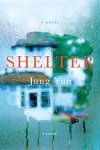 Shelter (Picador, March 15, 2016)
Shelter (Picador, March 15, 2016)
Author: Jung Yun
Expat credentials: Yun was born in South Korea, grew up in North Dakota, and was educated at Vassar College, the University of Pennsylvania, and the University of Massachusetts at Amherst. She now lives in western Massachusetts.
Synopsis: The story of young Korean American professor Kyung Cho and his Irish-American wife, which leads to the story of the complicated relationship that Kyung has with his wealthy parents. Kyung’s parents immigrated from Korea to the US as his father went to graduate school in engineering. Growing up, they gave him every possible advantage—private tutors, expensive hobbies—but they never showed him kindness.
How we heard about: New York Times Sunday Book Review
Why we recommend: It’s a family drama with a cross-cultural dimension: Kyung chose a white woman in part to distance himself from the rules of his own Korean upbringing, but can he make all of these relationships work?
 Forty Rooms (Penguin, Feb 16, 2016)
Forty Rooms (Penguin, Feb 16, 2016)
Author: Olga Grushin
Expat credentials: Grushin was born in Moscow but is now based in the United States. She is an American citizen but retains Russian citizenship.
Synopsis: A Russian-born woman aspires to be a poet but ends up becoming Mrs. Caldwell, a housewife and mother in suburban America.
How we heard about: New York Times Sunday Book Review
Why we recommend: Displaced writer Alexandra Fuller, who made my own list for 2015, was favorably impressed.
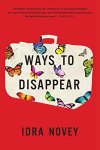 Ways to Disappear (Little, Brown and Company, Feb 9. 2016)
Ways to Disappear (Little, Brown and Company, Feb 9. 2016)
Author: Idra Novey
Expat credentials: Born in western Pennsylvania, Novey has lived in Chile, Brazil, and New York.
Synopsis: A noirish literary mystery with a translator at its center. Deep in gambling debt, the celebrated Brazilian writer Beatriz Yagoda is last seen holding a suitcase and a cigar and climbing into an almond tree. She abruptly vanishes. In snowy Pittsburgh, her American translator Emma hears the news and, against the wishes of her boyfriend and Beatriz’s two grown children, flies immediately to Brazil and tries to unravel the mystery.
How we heard about: Made the Publishers Weekly list of most anticipated debut novels of Spring 2016
Why we recommend: Novey is an award-winning poet. This is her first novel and it draws on her experience of working as a translator of Spanish and Portuguese literature.
 The Photographer’s Wife (February 2, 2016)
The Photographer’s Wife (February 2, 2016)
Author: Suzanne Joinson
Expat credentials: For ten years Joinson worked part-time in the literature department of the British Council, traveling regularly in the Middle East, China, Russia, and Eastern and Western Europe. She has worked in and explored Yemen, Egypt, Syrian, Greece, and many other countries.
Synopsis: The casually glamorous Eleanora Ashton scandalizes the British expatriate community in Jerusalem by marrying a famous Arab photographer. But then she falls for William Harrington, a British pilot who is working for the architect Charles Ashton. The affair threatens her marriage, particularly when William discovers that her husband is part of an underground nationalist group intent on removing the British. Years later, in 1937, Ashton’s daughter Prue is an artist living a reclusive life in Shoreham, Sussex, with her son. Harrington arrives and what he reveals unravels her world.
How we heard about: New York Times Sunday Book Review
Why we recommend: Like Joinson’s first novel, A Lady Cyclist’s Guide to Kashgar, set in Central Asia, the book is concerned with people who feel displaced; as the New York Times reviewer puts it, “they are looking for a guide, a map, some thread to lead them through the maze of their own lives.”
 Black Deutschland (Farrar, Straus and Giroux, February 2, 2016)
Black Deutschland (Farrar, Straus and Giroux, February 2, 2016)
Author: Darryl Pinckney
Expat credentials: A black writer from Indiana, Pinkney somehow ended up in the divided Berlin of the seventies and eighties and fell in love with it. Currently he divides his time between New York City, and Oxfordshire, UK.
Synopsis: It’s the early 1980s, and Jed, a young gay black American from Chicago who suffers from an addiction problem, has just finished reading Christopher Isherwood’s Berlin Stories. He is inspired to flee to Berlin in the tradition of other black writers and musicians: he hopes to escape American racism and homophobia.
How we heard about: New York Times Sunday Book Review
Why we recommend: For black writers and musicians in the postwar era, Europe’s cultural capitals provided a space for people like Richard Wright, James Baldwin, Dexter Gordon, Nina Simone and many others to practice and be appreciated first and foremost as artists, rather than be caught up in America’s race tragedy. Pinkney’s second novel imparts an appreciation for this history.
 What Belongs to You (Farrar, Straus and Giroux, January 19)
What Belongs to You (Farrar, Straus and Giroux, January 19)
Author: Garth Greenwell
Expat credentials: Greenwell moved to Bulgaria to teach at the American College of Sofia in 2009. Because of his non-fluency in Bulgarian, he lived “between languages” but claims to have liked that experience.
Synopsis: An American teacher in Sofia, Bulgaria is barely able to keep up a conversation in Bulgarian or ascribe concrete value to the leva and stotinki he keeps in his wallet. But then he enters into a transactional romance with a handsome and enigmatic Bulgarian male hustler named Mitko. His love for Mitko remains unrequited, but the relationship forces him to grapple with his own fraught history, the world of his southern childhood where to be queer was to be a pariah. There are unnerving similarities between his past and the foreign country he finds himself in.
How we heard about: Made the Publishers Weekly list of most anticipated debut novels of Spring 2016
Why we recommend: As Jeffery Zuckerman puts it in his review for The New Republic:
“Garth Greenwell’s writing is alive to the foreign and the unknown; he opens our eyes to worlds we had not realized existed alongside our own. Even the landscape of Bulgaria, one of the poorest and least-known countries in Europe, is made vivid and vibrant.”
 The Expatriates (Penguin Books, January 12, 2016)
The Expatriates (Penguin Books, January 12, 2016)
Author: Janice Y. K. Lee
Expat credentials: Janice Y. K. Lee was born and raised in Hong Kong. She received a BA in English and American Literature and Language from Harvard College. A former editor at Elle magazine, Lee lives in New York with her husband and four children.
Synopsis: Lee explores with devastating poignancy the emotions, identities, and relationships of three very different American women living in the same small expat community in Hong Kong.
How we heard about: From the special “Border Crossings” edition of the New York Times Sunday Book Review, focusing on books about global migration.
Why we recommend: As novelist Maggie Pouncey put it in her review of the book, Janice Y.K. Lee is a “female, funny Henry James in Asia.”
* * *
And so we have it: our top picks for displaced fiction that came out in 2016. What do you think, dear reader? Are we missing something you think deserves to be on the list? Kindly let us know in the comments!
ML Awanohara, one of the Displaced Nation’s founders and its current editor, has a section in the weekly Displaced Dispatch where she mentions the latest expat books. Why not subscribe as a treat to yourself during the winter doldrums?
STAY TUNED for next week’s fab posts.
If you enjoyed this post, we invite you to register for The Displaced Dispatch, a round up of weekly posts from The Displaced Nation, and much, much more. Register for The Displaced Dispatch by clicking here!
Related posts:
Photo credits: All photos via Pixabay or Morguefiles.
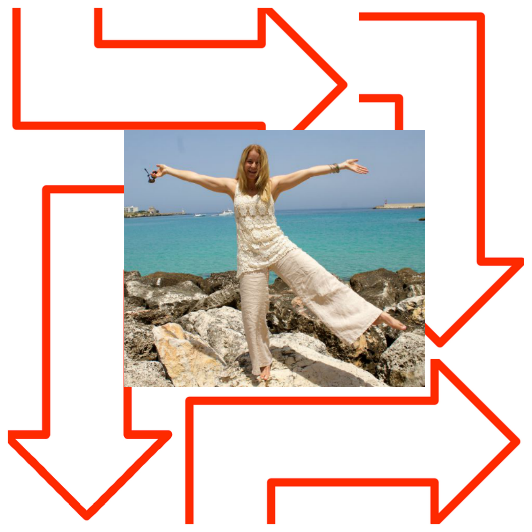




















































































![A cobwebbed window at one of the wineries; a glass of port, a fortified wine[https://en.wikipedia.org/wiki/Fortified_wine#/media/File:Port_wine.jpg], by Jon Sullivan via Wikimedia Commons; Lisa at La Motte Winery.](https://thedisplacednation.files.wordpress.com/2015/09/south-african-winetasting-collage.jpg?w=483&h=520)







